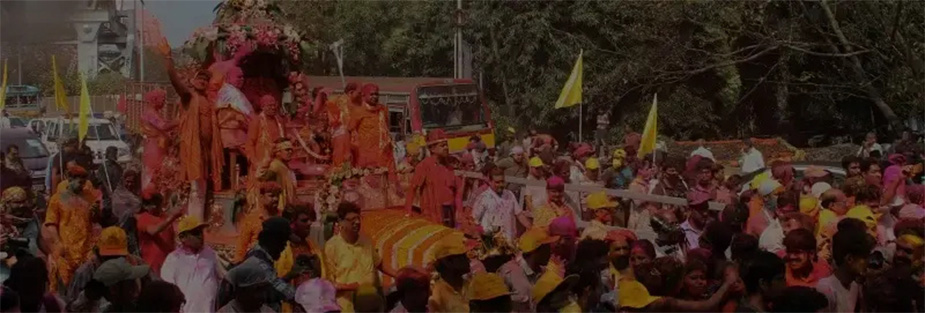
Relocation Challenges: How to Overcome Cultural Differences in India
India, a country of vivid colors, numerous cultural traditions, and bustling cities, has a wide range of benefits that make it an alluring choice for people looking to relocate. India offers a variety of chances for anyone looking to broaden their minds and advance personally, from its growing economy and numerous career prospects to its welcoming tourism and varied cultural experiences.
India’s expanding economy is one of the country’s many appealing advantages. India, one of the largest economies in the world, offers a favorable environment for business initiatives and professional progress. The nation offers a variety of job prospects across numerous areas, including information technology, healthcare, manufacturing, and finance, from large multinational corporations to budding startups.
Exceptional diversity in India is yet another intriguing feature that attracts visitors from around the world. India is a remarkable example of a fusion of cultures, with approximately 1.4 billion people representing a variety of ethnicities, languages, faiths, and traditions. Additionally, discovering the varied tastes and spices of Indian food is a sensory treat and a chance to indulge in a wide variety of delectable dishes. This blog provides various tips that would help you overcome cultural differences in India.
Cultivating Connections in Indian Society
-
- India boasts a diverse tapestry of customs and traditions across its regions. Demonstrate a genuine interest in learning about these customs.
-
- India offers a wide range of social groups, clubs, and organizations catering to various interests and hobbies. Seek out such groups aligned with your passions or hobbies, whether it’s sports, music, dance, or volunteering.
-
- Attend conferences, seminars, and professional activities that are pertinent to your area of interest. actively look for opportunities to network with business owners, professionals, and subject matter experts.
-
- Making connections in Indian society entails more than just making acquaintances, it additionally involves having in-depth, meaningful talks that can enhance your experience while you’re there.
-
- Many cities in India host workshops, cultural programs, and language classes for expatriates and newcomers. Participate in these events to gain insights into India’s way of life.
Bridging the Gap of Language and Communication
-
- Consider hiring a language tutor or enrolling in language classes to deepen your understanding and proficiency in the local language.
-
- When engaging in conversations, practice active listening by paying attention to the speaker, maintaining eye contact, and showing genuine interest.
-
- Look for opportunities to participate in language exchange initiatives or dialogue collaborations with native speakers. This gives you the chance to develop your speaking and listening abilities in a friendly setting while also forming relationships and cultural connections.
- Consider using professional translation services to ensure clear and exact communication in circumstances when it is essential, such as with legal documents or key commercial negotiations.
- Don’t hesitate to ask for help from your friends when you encounter language barriers.
By taking proactive steps to bridge the language gap, you can enhance your communication skills, foster meaningful connections, and navigate daily life more effectively during your relocation to India. If you are in need of specialized Hotel Fit Out relocation services, then be sure to collaborate with the ISS team to get the best solution at affordable pricing points.
Exploring the Flavors of India
One of the most exciting aspects of relocating to India is the opportunity to immerse yourself in its rich and diverse culinary scene. Food plays a central role in Indian culture, and exploring the flavors of India can be an excellent way to bridge cultural differences and connect with the local community. Here are some key points to consider when it comes to food and dining during your relocation:
-
- Familiarize yourself with Indian dining etiquette to ensure a respectful and enjoyable dining experience. In traditional settings, it is common to eat with your right hand, although the use of spoons is usually accepted.
- While exploring street food and local eateries, prioritize hygiene and food safety. Choose busy food stalls, check for clean food preparation areas, and opt for freshly cooked meals.
- Consider taking cooking classes or joining food tours to have a deeper understanding of Indian cuisine. These programs offer practical learning experiences where you can pick up traditional culinary methods, recipes, and information about the cultural significance of certain ingredients.
- It’s also advisable to drink bottled water and peel or wash fruits and vegetables thoroughly before consuming them.
- In India, food and home bring people together, so dining together is a common practice. Embrace the opportunity to share meals with local friends, neighbors, and colleagues.
- Communicate your dietary requirements clearly, and don’t hesitate to ask for modifications or alternatives when dining out as many Indian restaurants offer a wide range of options to cater to different needs.
Practical Tips for Navigating Daily Challenges
Moving to an unfamiliar nation, such as India, presents its own set of particular difficulties in adjusting to daily life. Here are some helpful hints to aid you in easily adjusting to your new surroundings, from using transport systems to comprehending local customs:
-
- Familiarize yourself with the local transportation options available in your city. Depending on the location, you may have access to buses, trains, auto-rickshaws, or metro systems.
- Set up a local bank account to handle your day-to-day financial transactions. Research the available banking services and choose a reputable bank with convenient branch and ATM locations.
- Research hospitals, clinics, and pharmacies in your area and determine the ones that offer quality care and are easily accessible.
- Arrange for an internet connection and set up a local SIM card for your mobile phone. Internet access is essential for staying connected, managing finances, and accessing various services.
- Familiarize yourself with local safety measures and practices to ensure your well-being and custom clearance. Stay updated on local news and advisories for any safety concerns.
- You may consider obtaining a local transport card or pass for convenient and cost-effective travel.
- Familiarize yourself with local grocery stores and markets to purchase fresh ingredients for cooking. Experiment with local spices and flavors to recreate traditional Indian dishes at home. Embrace the vibrant culinary culture of India by exploring different recipes and cooking techniques.
- Relocating to India can sometimes feel overwhelming. Seek out expatriate communities, support groups, or online forums where you can connect with others who have gone through similar experiences.
If you are in the process of considering a move to India with your children, it is advisable to take into account the services provided by ISS Relocations. Recognized for their exceptional records management knowledge and commitment to excellence, ISS Relocations offers an extensive array of services including custom clearance tailored to meet your requirements, guaranteeing a smooth and hassle-free transition for you.
Plan Stress-free Move with Top Moving Company in UAE - ISS Relocations

Frequently Asked Questions
What are different cultures in India?
India is home to a wide array of cultures, each with its own traditions, languages, and practices. The major cultures include North Indian, South Indian, and tribal cultures, as well as distinct regional cultures such as those of Bengal, Gujarat, and Punjab. ISS Relocations offers cultural orientation services to help you adjust to and appreciate the diversity of cultures in India, making your transition smoother and more enjoyable.
What are cultural differences and examples?
Cultural differences refer to the variations in social behaviors, customs, and values between different cultures. Examples in India include the diversity in language, food preferences, dressing styles, religious practices, and social interactions. ISS Relocations provides guidance on how to navigate these cultural differences, ensuring you understand and respect the traditions that shape your new life in India.
What are the 8 main types of cultural differences?
The eight main types of cultural differences include language, non-verbal communication, etiquette, religious practices, values, time orientation, food habits, and social structure. In India, these differences vary greatly across regions. ISS Relocations offers cultural sensitivity training to help you embrace and adapt to these cultural differences, ensuring a smooth relocation experience in India.
Why is India so culturally diverse?
India’s cultural diversity stems from its long history of regional kingdoms, ethnic groups, and religions, which have shaped its society over thousands of years. The country is home to multiple languages, religions, and traditions, making it one of the most culturally diverse nations in the world. ISS Relocations helps you understand and integrate into this rich cultural tapestry by providing personalized relocation services and cultural orientation.
What is the current culture of India?
The current culture of India is a blend of traditional customs and modern influences. While traditional practices like festivals, rituals, and family values remain strong, there is also a growing influence of Western culture, especially in urban areas. ISS Relocations offers cultural orientation services to help you understand the evolving dynamics of Indian culture, so you can integrate into your new life seamlessly.
Why does India have different cultures?
India has different cultures due to its vast history, regional diversity, and the coexistence of various religious and ethnic communities. Each region has developed its own traditions, language, and customs, contributing to the country’s cultural richness. ISS Relocations can help you navigate these differences and adjust to your new environment, providing support every step of the way in your relocation to India.
What are the reasons for cultural differences?
Cultural differences are caused by factors such as historical developments, geographical location, social norms, religious beliefs, and economic conditions. In India, these factors have contributed to the development of diverse cultures in different regions. ISS Relocations can provide guidance on how to understand and respect these cultural differences, making your transition to life in India smoother and more enjoyable.
Moving Company - Recent Blog
Stay informed and prepared for your next move with our latest blogs on moving services in the UAE. From expert packing tips to international relocation guides, ISS Relocations brings you up-to-date insights to make your moving experience smoother, safer, and stress-free.










